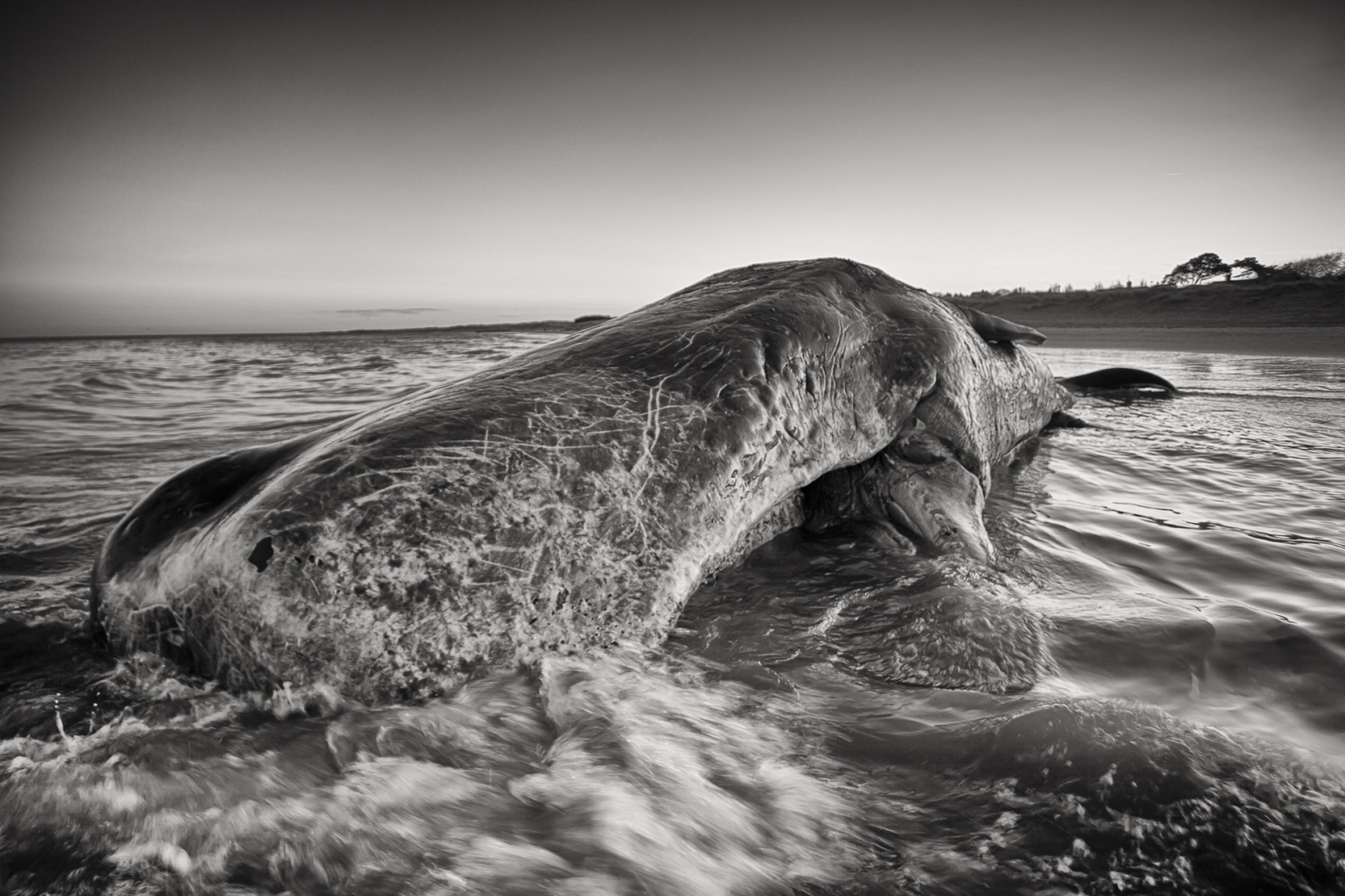
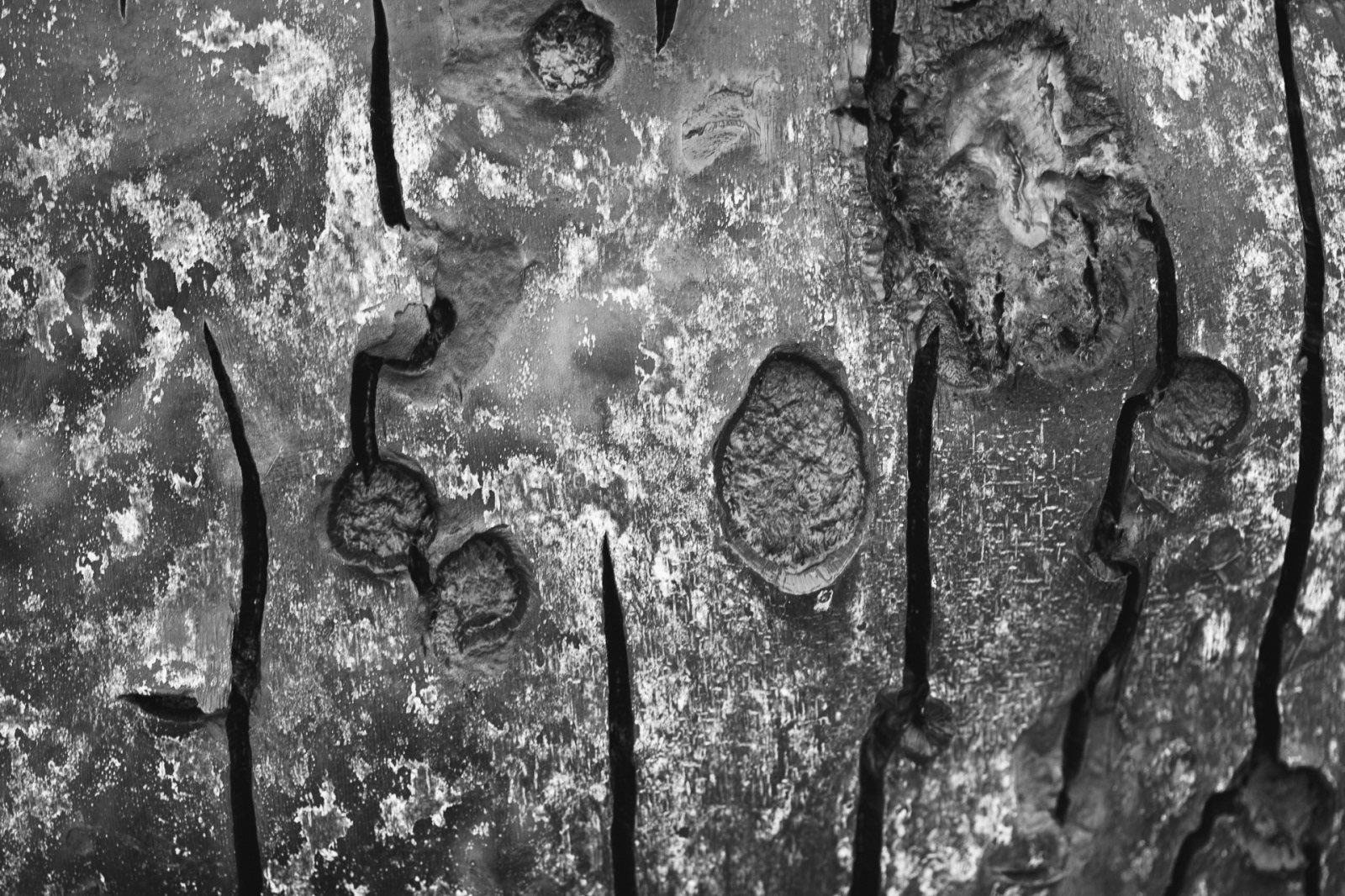
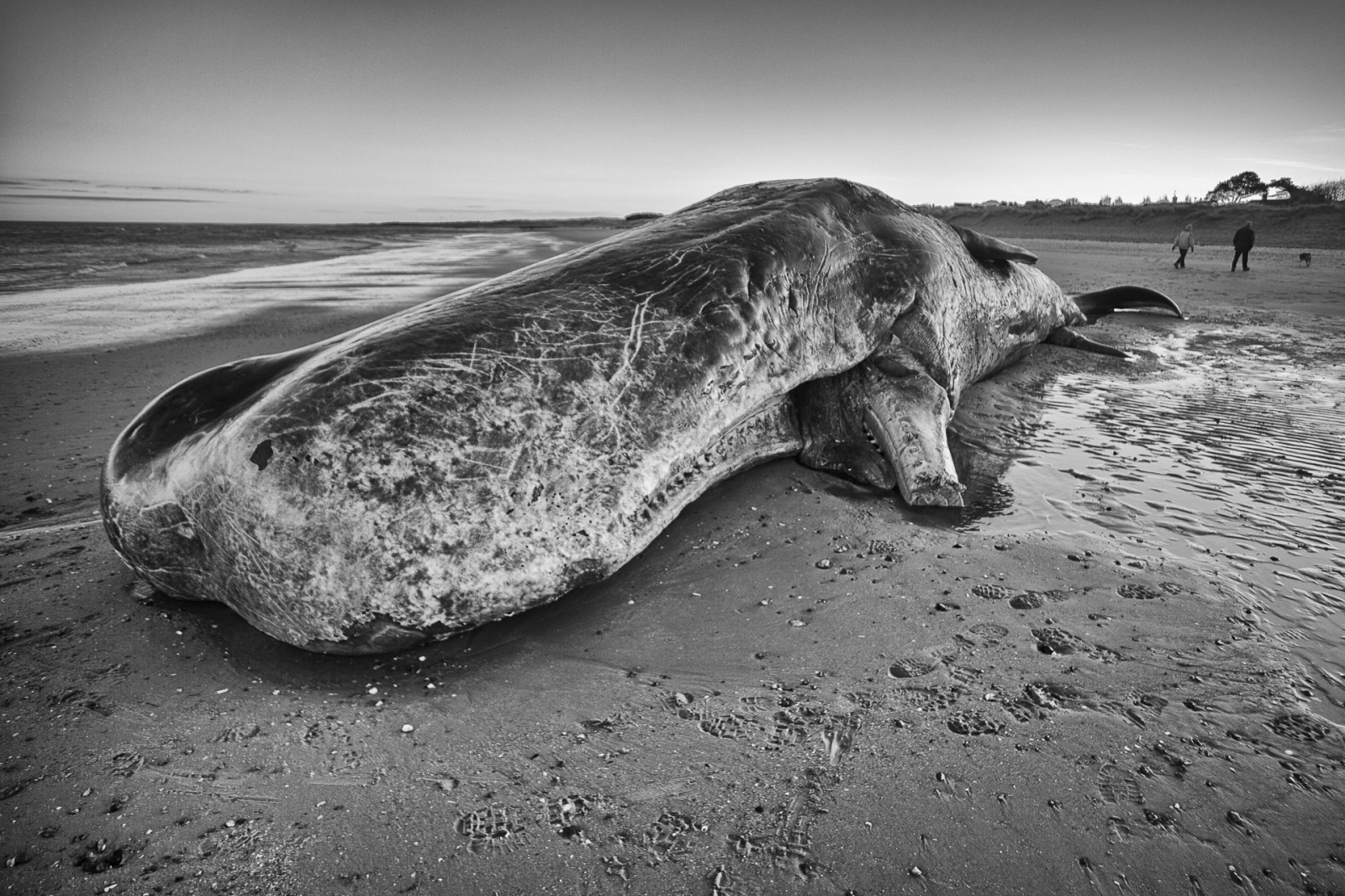
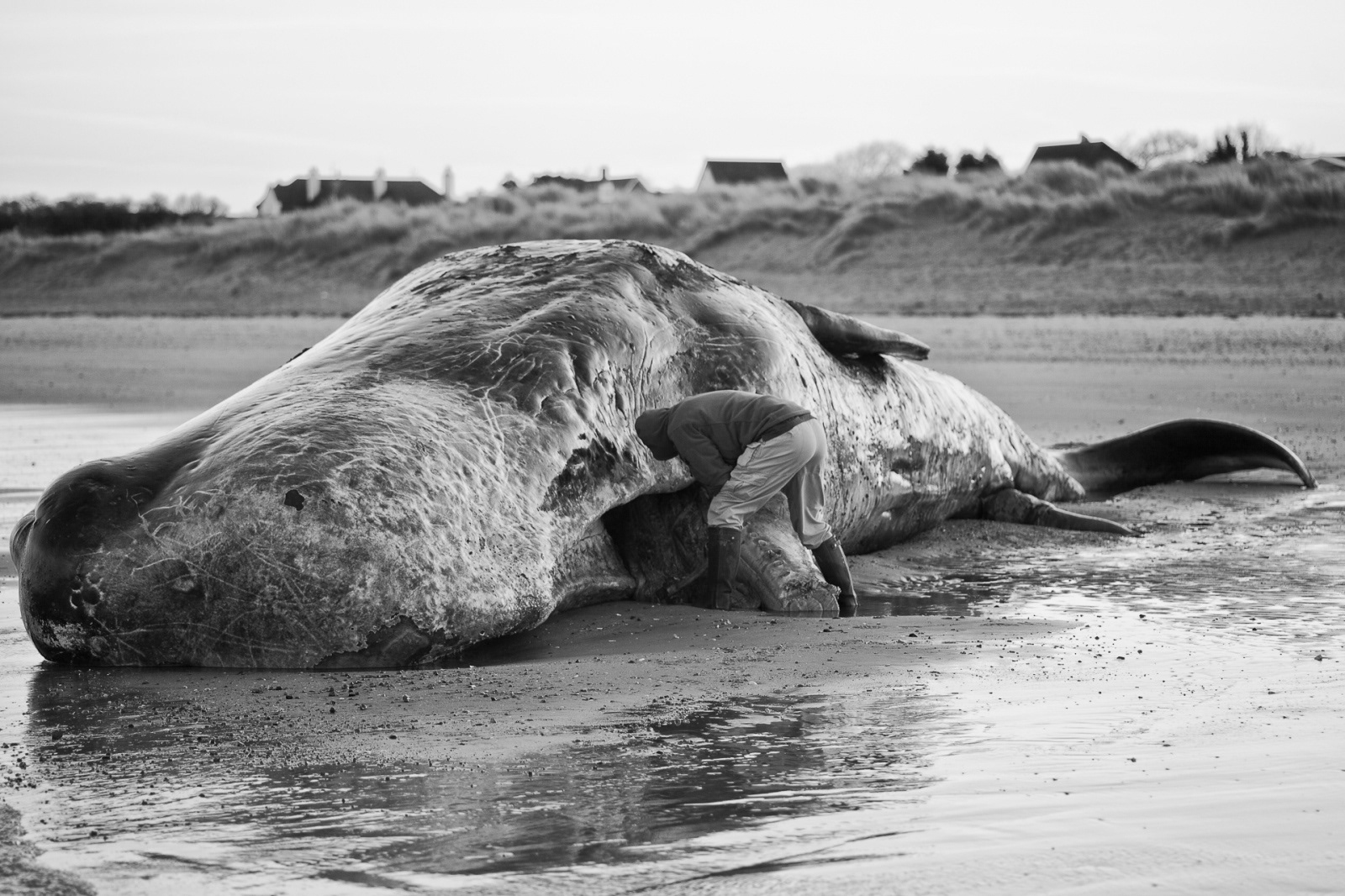
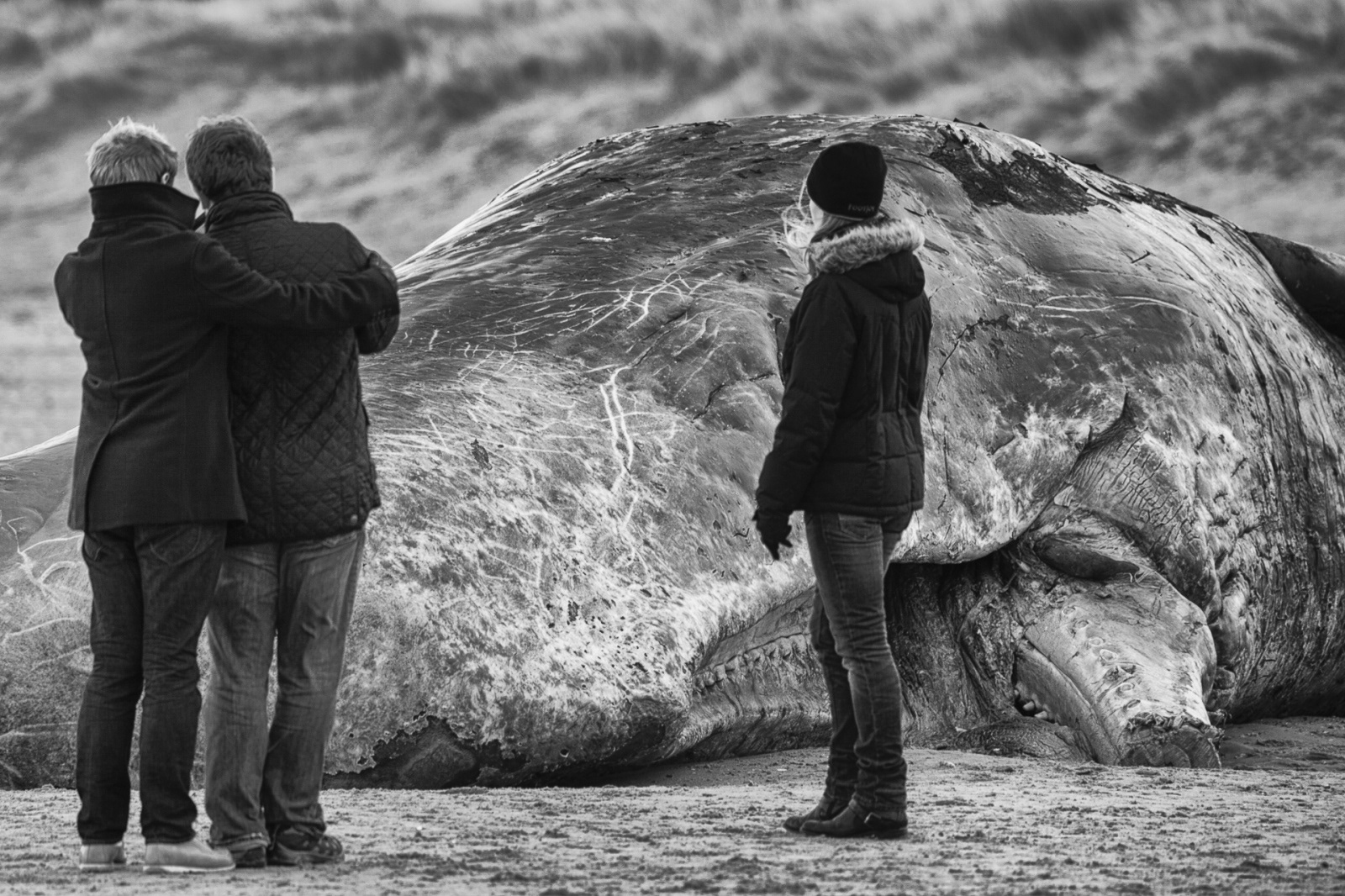
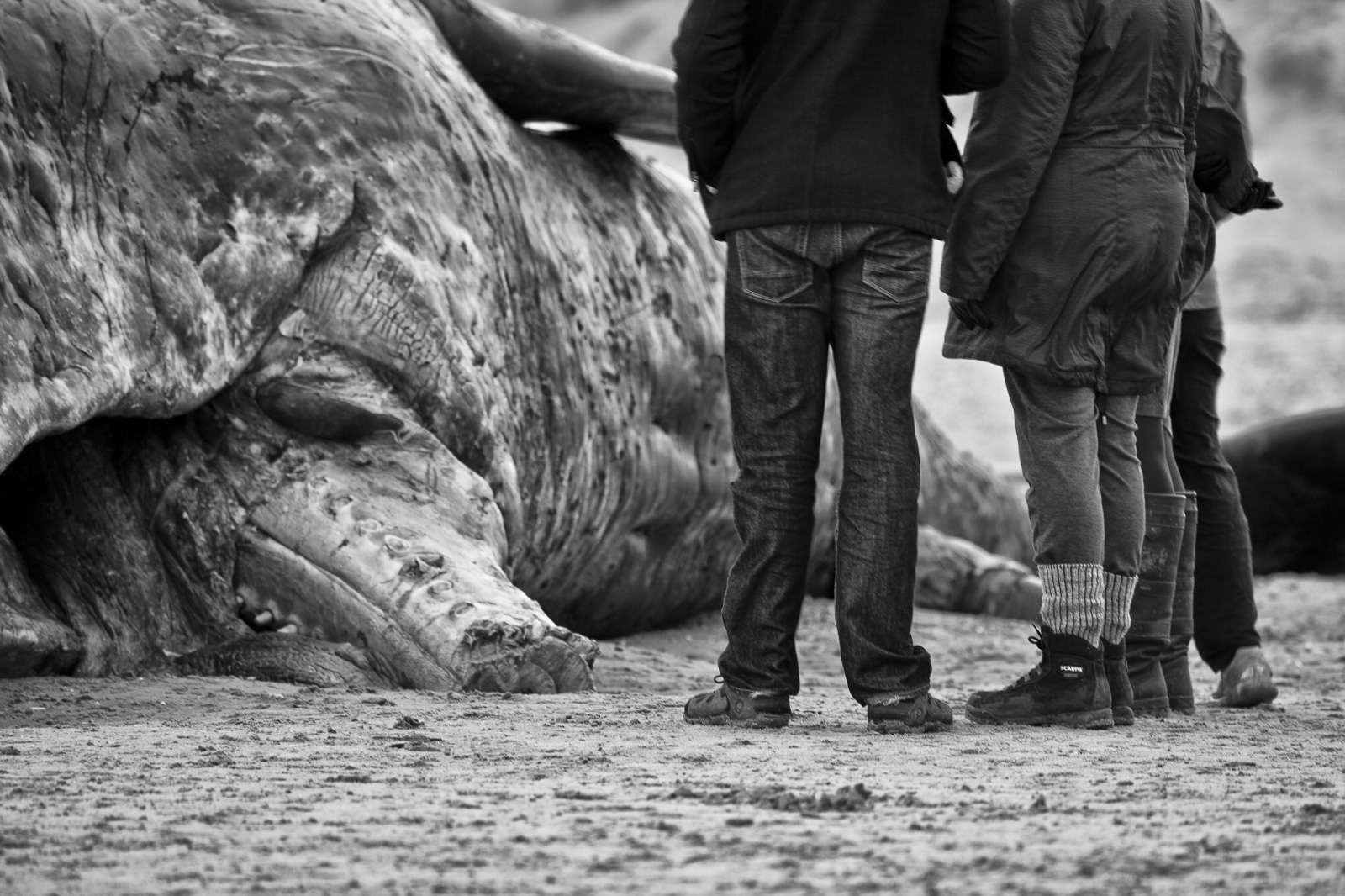
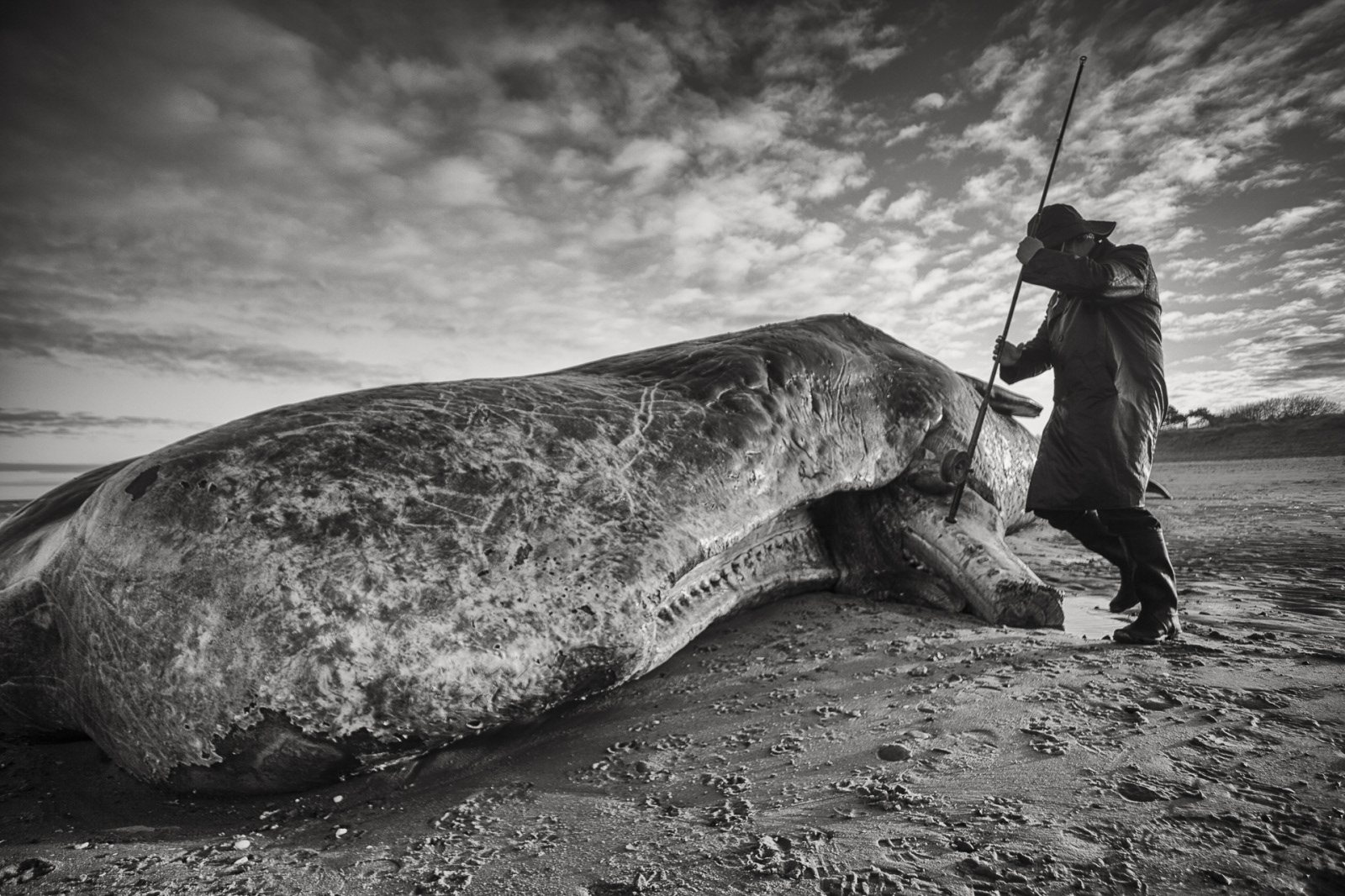
A member of the public poses in old fisherman's gear with a Sperm whale bull found stranded on the beach.A 40-foot-long Sperm whale bull was washed up on the beach at Old Hunstanton, in Norfolk, probably due to the fact that there are no squid to sustain this type of whale in the North sea. UK. 26th December 2011
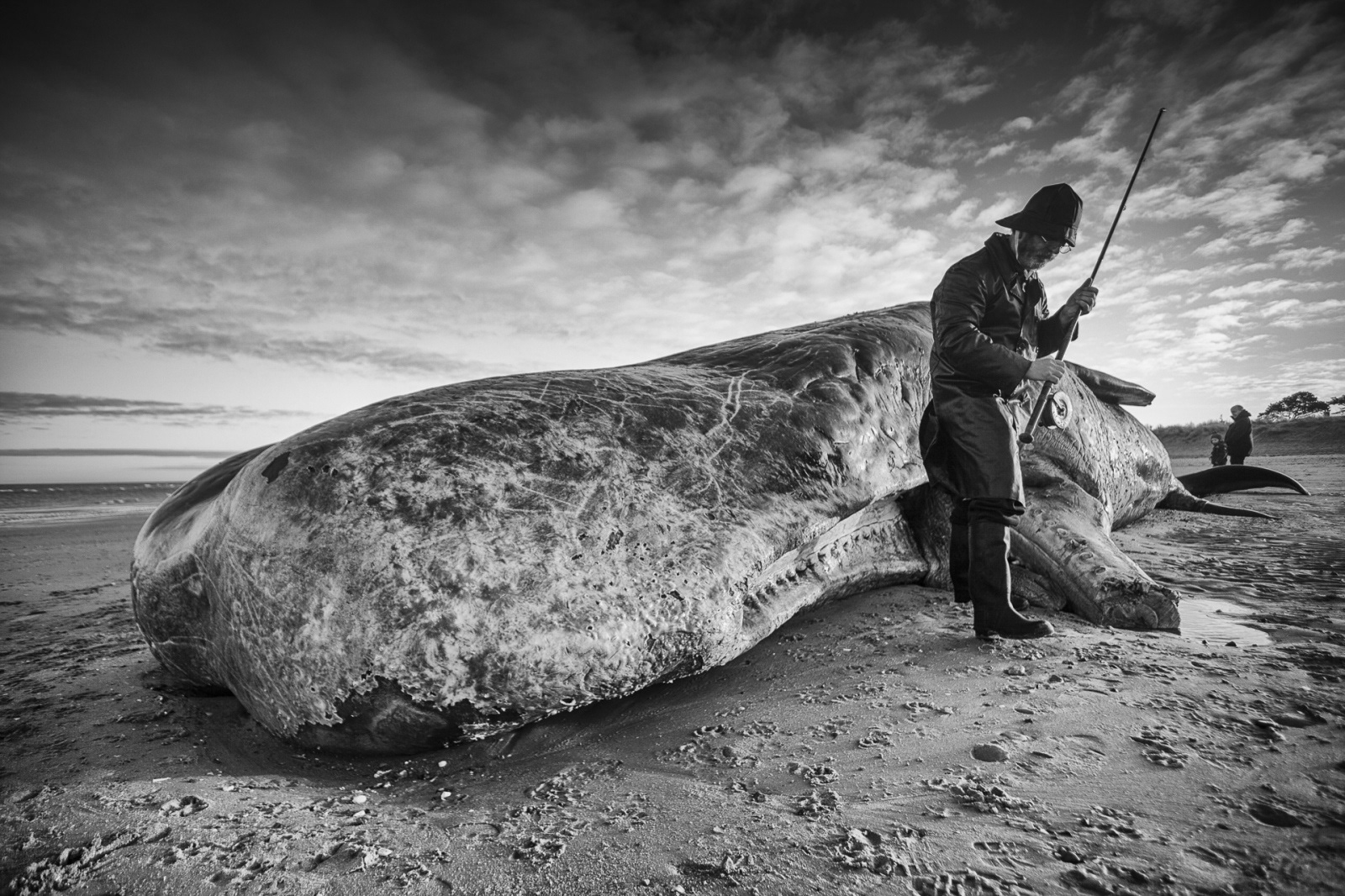
A member of the public poses in old fisherman's gear with a Sperm whale bull found stranded on the beach.A 40-foot-long Sperm whale bull was washed up on the beach at Old Hunstanton, in Norfolk, probably due to the fact that there are no squid to sustain this type of whale in the North sea. UK. 26th December 2011
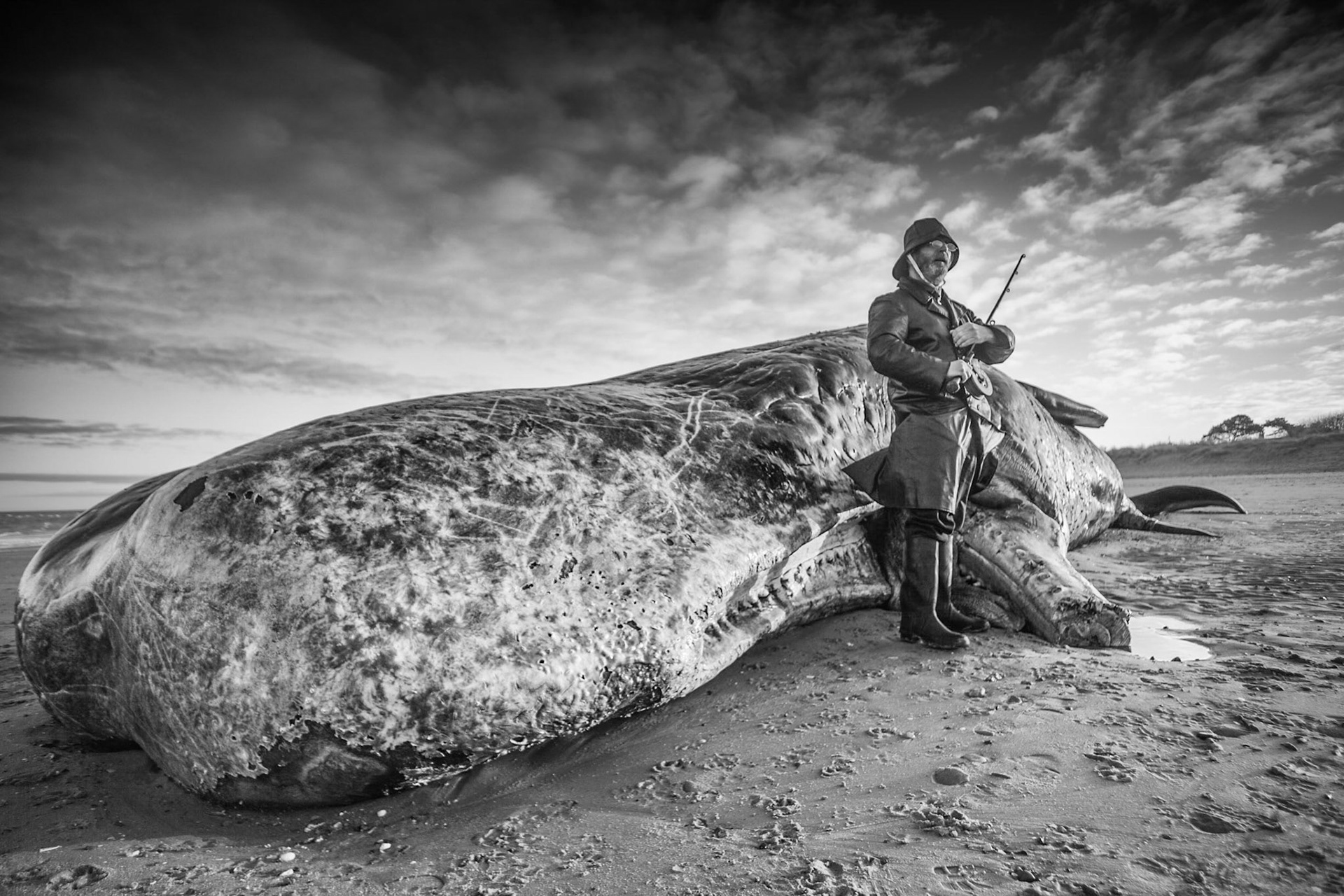
A member of the public poses in old fisherman's gear with a Sperm whale bull found stranded on the beach.A 40-foot-long Sperm whale bull was washed up on the beach at Old Hunstanton, in Norfolk, probably due to the fact that there are no squid to sustain this type of whale in the North sea. UK. 26th December 2011
Under an ancient law of the United Kingdom, whales like this Sperm Whale are "Royal Fish" and when stranded on any public beach become the personal property of the monarch as part of her royal prerogative.
One of Herman Melville's inspirations for his "Moby Dick" was the skeleton exhibited at Burton Constable Hall in East Yorkshire.
That whale washed ashore at Tunstall on the 28th of April 1825 and like the one in this series became a tourist attraction, with people travelling to see its body and, in some cases, chopping bits off.
Thomas Beale wrote it up in his book: "The Natural History of the Sperm Whale" the main influence for Melville when researching Moby Dick. So when Melville was in England a few years later, this was a primary source of information.
While taking these pictures Her Royal Highness Queen Elizabeth II was spending her Christmas holidays at Sandringham, only a few miles away. As I stood on the beach in typical English icy Winter temperatures, I could not help but make a metaphorical connection between "Royal Fish”, Her Royal Highness, Constable, Melville and the “otherness” of a most majestic creature.
One of Herman Melville's inspirations for his "Moby Dick" was the skeleton exhibited at Burton Constable Hall in East Yorkshire.
That whale washed ashore at Tunstall on the 28th of April 1825 and like the one in this series became a tourist attraction, with people travelling to see its body and, in some cases, chopping bits off.
Thomas Beale wrote it up in his book: "The Natural History of the Sperm Whale" the main influence for Melville when researching Moby Dick. So when Melville was in England a few years later, this was a primary source of information.
While taking these pictures Her Royal Highness Queen Elizabeth II was spending her Christmas holidays at Sandringham, only a few miles away. As I stood on the beach in typical English icy Winter temperatures, I could not help but make a metaphorical connection between "Royal Fish”, Her Royal Highness, Constable, Melville and the “otherness” of a most majestic creature.
The sperm whale or cachalot (Physeter macrocephalus) is the largest of the toothed whales and the largest toothed predator. It is the only living member of the genus Physeter and one of three extant species in the sperm whale family, along with the pygmy sperm whale and dwarf sperm whale of the genus Kogia.
The sperm whale is a pelagic mammal with a worldwide range and will migrate seasonally for feeding and breeding. Females and young males live together in groups, while mature males (bulls) live solitary lives outside of the mating season. The females cooperate to protect and nurse their young. Females give birth every four to twenty years and care for the calves for more than a decade. A mature sperm whale has few natural predators, although calves and weakened adults are sometimes killed by pods of killer whales (orcas).
Mature males average 16 metres in length but some may reach 20.7 metres, with the head representing up to one-third of the animal's length. Plunging to 2,250 metres, it is the third deepest diving mammal, exceeded only by the southern elephant seal and Cuvier's beaked whale. The sperm whale uses echolocation and vocalization as loud as 230 decibels (re 1 µPa m) underwater. It has the largest brain on Earth, more than five times heavier than a human's. Sperm whales can live 70 years or more.
Spermaceti (sperm oil), from which the whale derives its name, was a prime target of the whaling industry and was sought after for use in oil lamps, lubricants, and candles. Ambergris, a solid waxy waste product sometimes present in its digestive system, is still highly valued as a fixative in perfumes, among other uses. Beachcombers look out for ambergris as flotsam.
Sperm whaling was a major industry in the 19th century, as depicted in the novel Moby-Dick. The species is protected by the International Whaling Commission moratorium and is listed as vulnerable by the International Union for Conservation of Nature.
Physeter macrocephalus's Conservation Status (2022)